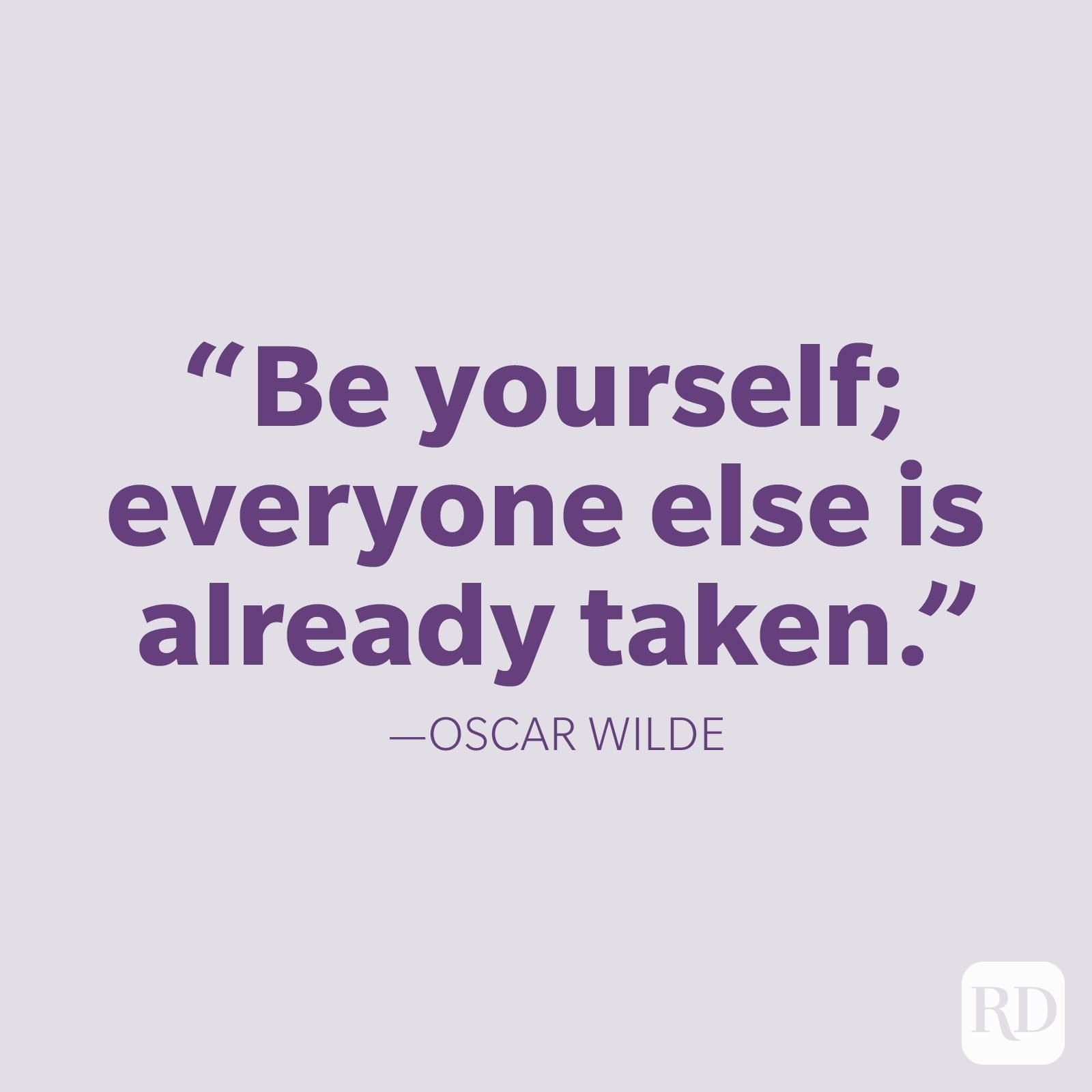My Personality Test Results
I was quite excited for the post this week as I knew it would be a way to take a more analytical approach into my personality and to learn more about myself and how I can use my strengths to become a more effective leader. More importantly, I was interested in learning my weaknesses so I would be able to recognize them as areas of potential improvement and be able to utilize new techniques to not allow my weaknesses to negatively impact my ability to function as a leader.
After completing a personality assessment on 16personalities.com/personality-types the results are in...
Results of personality test: Advocate  What an advocate is: for advocate personalities, success doesn’t come from money or status but from seeking fulfillment, helping others, and being a force for good in the world.
What an advocate is: for advocate personalities, success doesn’t come from money or status but from seeking fulfillment, helping others, and being a force for good in the world.
Nothing lights up Advocates like changing someone else’s life for the better.
“Treat people as if they were what they ought to be and you help them to become what they are capable of being.”
I found this quite ironic that this is the personality type that I was depicted as since I was labeled as a 'master advocator' by my closest peers in week one's blog before I had completed this personality test. Advocacy for my patients is something that I feel strongly about since they are scared and not knowledgeable about what is actually going on with their healthcare. It is our job as healthcare providers to use our knowledge and be the voice for patients that don't know how to have one.
A Look into Introversion vs. Extroversion
According to my personality test that I took by the 16 personalities website, I was considered to be 59% introverted.
Mind:
INTROVERTED
You’re mostly Introverted. You likely prefer fewer, yet deep and meaningful, social interactions and feel drawn to calmer environments (16personalities.com).
I thought that this number would actually be a little higher as I felt as though I am a bit more of an introvert than that portrays. However, I have noticed that as I gain more confidence in my current role and current profession, I am possessing more extroverted qualities as I have spent several years of my career being highly introverted and learning more about the role and expectations. This degree of confidence and listening to my surrounding for years has helped me to become more vocal about things that potentially need to be altered to make a process run more smoothly.
Susan Cain (2012), an introvert herself, introduced the topic of being a leader that is introverted. Many people in the general population have a preconceived notion that people who are introverted are unable to be good leaders because they are too shy or reserved to be able to manage an organization or group of people. However, Cain discusses how introversion is not a synonymous term with shyness, but rather a term to discuss how a person deals with stimulants from their external environment. There are many famous leaders in our history who were actually quite introverted. For example, a few famous introverted leaders are Mahatma Ghandi and Albert Einstein to name a few.
 When Ghandi was asked what inspirational statement he could share with others looking to lead in a similar fashion, he boldly stated: " My life is my statement."
When Ghandi was asked what inspirational statement he could share with others looking to lead in a similar fashion, he boldly stated: " My life is my statement."
In terms of being an introverted leader, these types of leaders actually can have better outcomes than extroverted ones, according to Cain, as the introverts tend to stand back and listen to the ideas of their peers and allow them to use their creativity for new ideas and changes with a higher level of autonomy. Extroverted leaders can sometimes stifle the creativity of their peers and overpower them with their own ideas about changes that need to occur, although this does not always have to be the case.
However, extroversion is obviously not all bad. Introverts work in solitude to come up with their ideas through creative reflection but must then be able to take the initiative to present these ideas and to help begin the process to elicit changes within an organization. Therefore, they must flip into some degree of extroversion to be able to get their ideas initiated and to influence others. In addition, interdisciplinary work and collaboration are both extremely important factors within an organization to allow it to function best. There are several moving parts to every system and if they aren't working toward a common goal it is more difficult to have a properly operating system.
Assertiveness vs. Turbulence - Being Myself
Unsurprisingly, my personality test depicted me as 68% turbulent and only 32% assertive.
Identity
TURBULENT
You’re mostly Turbulent. You’re likely self-conscious, sensitive to stress, success-driven, perfectionistic, and eager to improve (16personalities.com). To differentiate between these two descriptive terms, an assertive personality is viewed as more calm, confident, and relaxed.
For me, this hits the nail on the head in terms of my personality. I am constantly concerned with how others are viewing me and if the work I have done is good enough. I am timid at times to share my ideas and thoughts in fear of being viewed in a negative light since I want everything that I do and say to be perfect, or at least viewed as perfect. I thrive off the validation of others to know that I am doing a good job rather than my own self-evaluation of my performance.
Caroline McHugh's (2012) TEDTalk about 'the art of being yourself' helped me to find a new frame of mind to help restructure my self-conscious behaviors. McHugh mentions not having to compare yourself to anyone else because you are your own self. While you may not match the degree of strengths that another individual has in something, we each have our own set of strengths that makes us our own individual. Therefore, the focus should be on being the best version of yourself rather than trying to be a being an imitation version of someone else. The focus should be to develop my own sense of 'queendom' (McHugh, 2012).

Unfortunately, the modern, western world that we currently live in puts a lot of emphasis on physicals traits and competition with one another while the eastern world focuses more on the spiritual aspects of one's being. I loved McHugh's analogy using an hourglass figure to describe periods in your life when you are best at being the truest version of yourself. As you are young you tend to have a minimal filter and have no fear in sharing your own thoughts and ideas. This begins to change around the age of 7 when you start to develop a sense of being more self-conscious. This new revelation of self consciousness then continues on through your adulthood until you enter middle to later adulthood in which you, again, become best at just being yourself and not afraid to share what matters to you.
The Power of Negative Thinking 🤔
Wait. Isn't that the opposite of what it should say?? While 'the power of POSITIVE thinking' is what we are used to hearing, I want to discuss how negative thoughts have the power to change all of your thoughts unless you direct them in a positive light early on.
Perhaps the most powerful video that I watched overall this week that will effect my frame of mind was the video by psychologist Allison Ledgerwood (2014) discussing changing your frame of mind from focusing on the negatives to the positives.
 It was fascinating to me to learn that in a series of studies that were conducted on groups of people that if a negative connotation is associated with an idea it is much more difficult to try to change the frame of mind to a positive one, but if you START with a positive frame of mind even if something negative happens you still have the potential to hold a positive frame of mind. For some reason failures stick in our mind much longer than a success. It is unfortunate that our minds are programmed in this way but Ledgerwood helps to discuss how this programming can be changed with small changes in our daily thought processes.
It was fascinating to me to learn that in a series of studies that were conducted on groups of people that if a negative connotation is associated with an idea it is much more difficult to try to change the frame of mind to a positive one, but if you START with a positive frame of mind even if something negative happens you still have the potential to hold a positive frame of mind. For some reason failures stick in our mind much longer than a success. It is unfortunate that our minds are programmed in this way but Ledgerwood helps to discuss how this programming can be changed with small changes in our daily thought processes.

Personally, there are some days where I find the negatives in each situation flying out of my mouth. "Why do we have to do this?" "Why are people so unappreciative?" " This person gets on my nerves." I have caught myself saying these things and fortunately am able to realize that I am saying them and attempt to flip my frame of mind, but find it much easier to fall right back into the negatives rather than continue on with the positives if I started off my day with a negative tone. It is like a domino effect with your peers as well. If you voice these negative comments it is likely to lead to a negative work environment. However, I notice a huge difference in the work environment whenever I come in with a positive, open mind, as the environment seems much lighter with a greater sense of teamwork and an overall sense of productivity and accomplishment. I also feel like with my personality at work and being deemed an advocator, that I have the capability to change the entire tone of the work day within my team in accordance with the way that I approach the day and the persona that I radiate.
Digital Age of Leadership
As the world becomes more technologically advanced, leadership itself has also had to evolve with these changes into a more innovative role. Many of the current leaders have been in their roles for a long period of time and tend to have a more difficult time adjusting to the technological advances that are now taking over the healthcare field. Innovations are exploding with the increased use of virtual medicine, artificial intelligence, and improved computerized records. Innovation has actually become a way of life and is required by most organization now to remain competitive, advance, and to sustain (Albert et al., 2022). We are seeing many more young leaders come into action recently as they are better able to understand how to utilize technology to their advantage and to help produce change.
In my current nursing career, my peers view me as a technological innovator which I take as a huge compliment since my kids tell me I am old. 😄 I am often the first to pilot new processes and test out new computer programs being rolling them out across the organization. I am a resource for troubleshooting issues with technology and helping to bring about changes within our institution. In my opinion, I feel as though am in a very fortunate generation while we transition from the industrial age to the digital age. While I wasn't in the generation where a cell phone was glued to my hand from an early age, I was still able to be a part of all the technological advances that are coming to fruition while also having had the ability to see the time in which a lot of physical hard work had to take place in order to make something happen where technology might now make the process much simpler and faster!
References
Albert, N. M., Pappas, S. H., Porter-O'Grady, T., & Malloch, K. (2022) Quantum leadership: Creating sustainable value in health care. Jones & Bartlett Learning.
Cain, S. (2012, March). The power of introverts. [Video]. TED Conferences. https://www.ted.com/talks/susan_cain_the_power_of_introverts?language=en
Ledgerwood, A. (2014, November 6) Getting stuck in the negatives (and how to get unstuck). [Video]. TED Conferences. https://www.ted.com/talks/alison_ledgerwood_a_simple_trick_to_improve_positive_thinking
McHugh, C. (2016, December 29). The art of being yourself. [Video]. TED Conferences.
Comments
Post a Comment